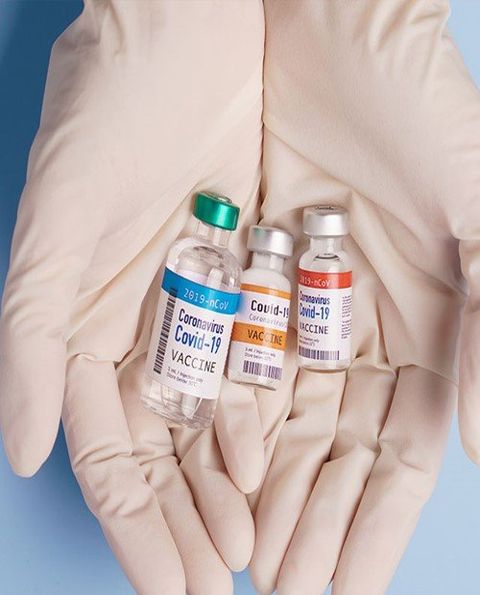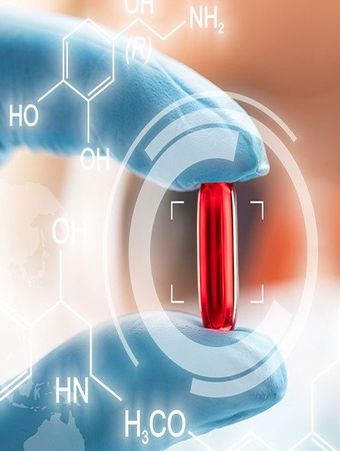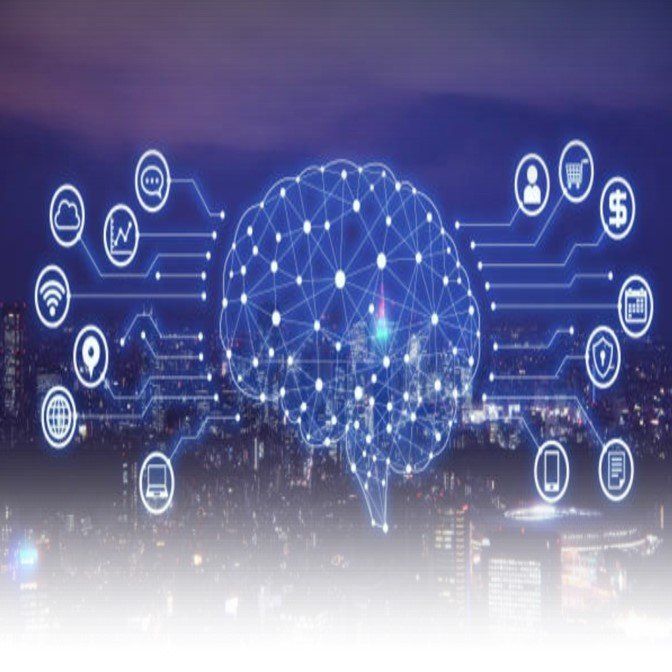Life Sciences
Embrace Digitalization with Xenolytix
The Life Sciences industry is ready for a new direction on a large scale. It is facing numerous challenges - pricing pressures, a focus on outcomes, complex drug portfolios, and a challenging regulatory environment. That said, with these challenges comes the opportunity for Life Sciences companies to transform.
In the scientific realm, we see tremendous growth and focus on Personalized Medicine through advancements in genetics, incorporation of genetics in treatments, digitized assessment and treatment of patients, increased focus on immune cell functions, automation of regulatory compliance, and emergence of value-based care.
The future of Life Sciences is fast becoming digital – technologies such as Artificial Intelligence (AI), Internet of Medical Things (IoMT), Cloud Content Management, Information and Data Security, Enterprise Analytics, and Advanced Data Science.
With Machine Learning we help our Life Sciences clients provide better customer care, enhance logistics, and accelerated R&D through automation. With AI, Life Sciences companies can analyze large data sets – clinical data, genetic data sets, and medical records.
Cloud Technology is disrupting the traditional patient value chain. Cloud based applications are significantly improving areas such as R&D, operations, enterprise resource planning, financial management, data analytics, compliance & risk, and innovation.
Blockchain provides immutability, scalability, and traceability of records with multiple data access permission levels. Clinical trial on Blockchain helps manage patient consent, maintain trial protocols, track patient samples, and ensure secure communications between trial sites.
At Xenolytix, we understand the importance of becoming digital. We use the latest emerging technologies to transform Life Sciences business functions.
R&D
Revolutionize R&D productivity with Big Data, AI, and IoT.
Supply Chain
Leverage Industry 4.0 technologies for a seamless and lean Supply Chain
Clinical Trials
Improve patient enrollment and success rate, and data transparency.
Commercial
Create value for customers and improve patient outcomes with data-driven models
Reshaping R&D with emerging technologies
Innovation remains imperative amid increasing pricing pressures, growing market share for generic pharmaceuticals and biosimilars and looming patent cliffs. The remarkable discoveries made in areas like gene and cell therapy, genetic engineering, immunotherapy, and precision medicine have raised the possibility of cures for diseases that were thought to be untreatable.
Machine Learning powered drug discovery is enabling big pharma & biotechs to change the traditional approach of R&D, taking between 11 - 15 years and with costs exceeding $3 billion. Machine Learning can streamline R&D efforts by integrating and processing vast datasets to derive actionable insights. -from drug target identification, lead compound screening, preclinical and clinical trials, to greatly improving the success rate of drug development.
New avenues enabled by real-world evidence, translational medicine, data science, enterprise analytics, digital health and other advanced technologies and innovations offer life sciences companies new opportunities to improve R&D efficiencies and returns and elevate the patient experience.
Intelligent Clinical Trials
The last major technical evolution in clinical trial execution was moving from paper-based processes to electronic data capture. The clinical trials industry is long overdue for a tidal wave to come through and lift the technical sophistication of the segment. Covid-19 has had a devastating impact on clinical trials through temporary suspensions, reduced recruitment, and trial delays. It has also helped to facilitate digital transformation at an unprecedented rate. Clinical Trials is an area with great potential for optimization; only 12% of drug development programs ended in success in the last two decades.
Patient recruitment for clinical trials is known to be a challenging aspect of clinical research. There are multiple competing concerns from the sponsor, patient and principal investigator’s perspectives resulting in most clinical trials not meeting recruitment requirements on time. The rapid growth of low-cost wearable IoMT (Internet of Medical Things) monitors for the consumer market is a fantastic avenue for identifying potential patients and gathering huge volumes of data spanning years of an individual’s life. Blockchain is one such technology that can enhance Clinical Trial recruitment due to the imperative for secure communication between the stakeholders. For example, complexity of the data streams involved in a clinical trial can be traced using Blockchain.
Machine Learning can reduce clinical trial cycle times while improving the costs of productivity and outcomes of clinical development. Data Science and Analytics could help accelerate clinical testing. Machine Learning is enabling clinical trial sponsors to fill in the gaps when real world evidence is incomplete or inconsistent. It can do even more, detecting early indicators of disease, and even quantifying pain.
Gaining Ground With Supply Chain
The Life Sciences sector is currently going through a transformational phase of its operating models and supply chains. Verifying the provenance of a medicine—from where its ingredients were made and where the drug was manufactured, to how the medicine was handled through the end-to-end supply chain and all the way to the patient in a trusted manner, is becoming an increasingly mandatory supply chain capability. That means life sciences and pharmaceutical organizations must maintain vigilance in evaluating everything from operational processes to technology to ensure a dynamic, agile, and always-resilient supply chain.
Blockchain is becoming increasingly relevant to address the perennial challenges of trust and speed in the life sciences supply chain. It provides a mechanism to ensure quality across all steps of drug development and distribution, ranging from immutable batch records of active pharmaceutical ingredients (APIs) in the manufacturing process to easily reporting adverse events and recalling drug batches.
Data Science and Analytics on real-time supply chain data can help understand things like mix-level detail and material and capacity constraints to optimize production. Predictive Analytics using external data such as weather can assist firms determine peak demands for certain drugs and ramp up production accordingly. Big Data Analytics can also assist in identifying counterfeit goods and reduce fraud.
IoT devices can greatly assist in managing the supply chain, from cold-chain management to real time inventory control, to supply/demand optimization.
Harnessing the Potential of AI in Commercial Life Sciences
How do we optimally and continuously coordinate all marketing and sales activity? Machine Learning can predict the optimal way to orchestrate multichannel engagement and identify the next best way to engage with its customers, and the timing for such customer engagement. It can also enable much more complex segmentation – Machine Learning allows for infinite levels of highly specific segmentation. Commercial teams are then able to personalize their engagement with greater specificity based on individual behaviors. It also helps remove laborious data entry and provides a virtual assistant for pharmacy planning—all through a reps’ smartphone.
Commercial organizations collect a large volume and variety of data that are typically siloed across hundreds of different sources. This creates a fragmented view of the stakeholder landscape and makes it impossible to plan and execute across their complex ecosystem of stakeholders. Data Science and Analytics can help clean this data and derive valuable insights.










